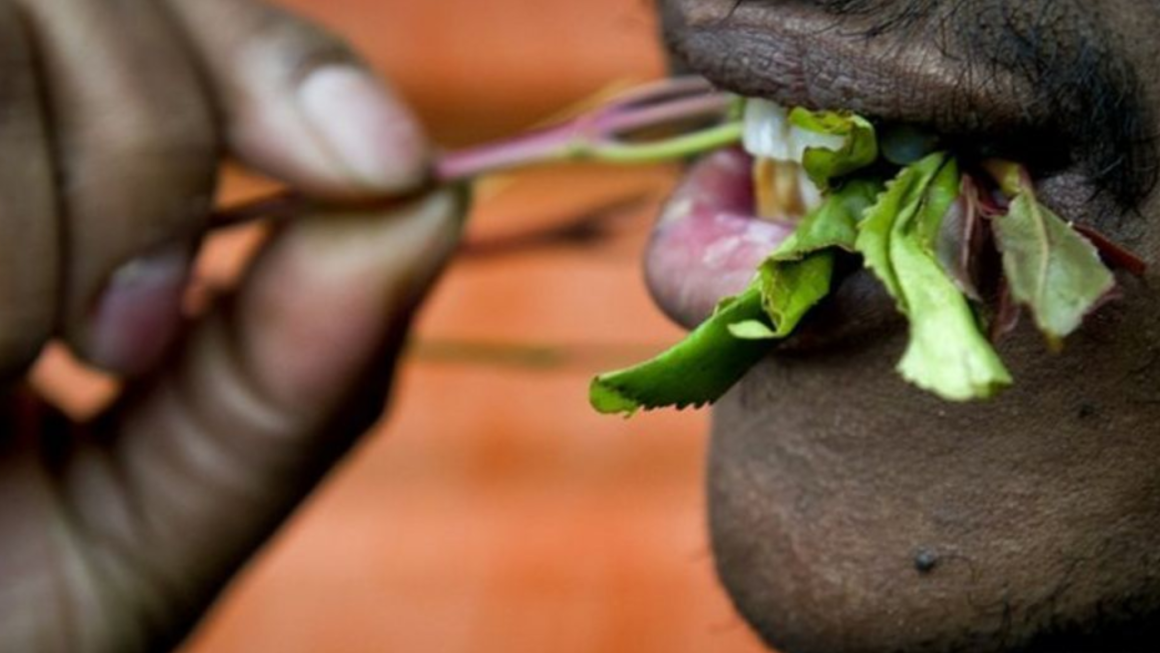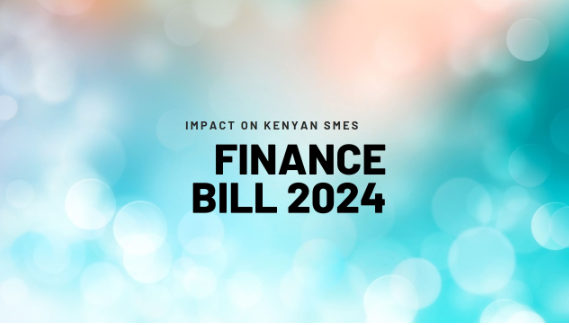On Tuesday morning, the media fraternity woke up to the sad news of the death of one of their entertainment superstars, Jahmby Koikai. Jahmby died on Monday night while undergoing treatment at the Nairobi Hospital. Jahmby was well-known for her steadfast love for reggae music, where she pulled off a spectacular show. Known by her stage name Fyah Mummah, Jahmby was always transporting her fans to a reggae universe. Her love for the mic, together with her deep understanding of reggae music, was more than she needed to conquer the world of reggae. But behind her love for reggae lay deep scars and pain she endured during her struggle with a rare but extreme condition known as Endometriosis. The reggae star has shared her long struggle with the disease for two decades. Njambi Koikai Prior to her demise, Njambi had undergone a series of surgeries both locally and abroad trying to fight the disease. In 2018, she stayed in Atlanta, USA, for more than a year while undergoing specialized treatment. The radio host recounted undergoing up to 21 surgeries and had declared herself a miracle for staying four years without surgery since she came back from the US. Njambi’s story is not an isolated case, as many women in Kenya and Africa are battling the disease. Many suffer in silence thanks to the limited knowledge, stigma, and normalization of period pain. Understanding Endometriosis and the Stigma Around It Endometriosis is a condition that occurs when layers of tissue covering the uterus grow outside the body. The layers usually grow around the fallopian tube, ovaries, and other tissues around the uterus. The result is intense pain, especially during the menstrual period. Scientific illustration of how endometriosis looks like Some of the common symptoms of endometriosis include painful periods, heavy bleeding, and painful sex. Sometimes, the pain can be so severe leading to loss of consciousness. But it doesn’t end there; women with endometriosis struggle with child-bearing as it’s hard for them to get pregnant. The disease first manifests at puberty when a girl gets her first period and lasts until menopause. Currently, there is no known cause of endometriosis, and nothing can be done to prevent it. The cure for endometriosis is also not available, as medication and surgical procedures are only meant to relieve the symptoms. The symptoms are also variable and broad, making it hard for doctors to diagnose them. The Struggle of Kenyan Women with Endometriosis According to World Health Organization (WHO), roughly 10 per cent of women of reproductive age are diagnosed with endometriosis. 30-40 per cent of women with endometriosis suffer infertility. The Kenyan women battling endometriosis deal with pain and heavy bleeding. The bleeding can sometimes last up to three months, causing them anxiety and depression. Those of school-going age find it hard to attend classes when bleeding and in pain. The working class lose their careers due to underperformance and absenteeism from work. A woman with pelvic pain holding her tummy Women in Kenya struggling with endometriosis not only have to deal with a lot of pain but also face stigma from family and friends. They go through rejection and lose friends because of infertility. Others face rejection due to the belief that the condition results from a curse. Many of these women even lose their marriages as they can’t fulfill their partners’ sexual desires due to painful intercourse and several months of nonstop bleeding. The women say they never enjoy sex and are often forced to endure extreme pain instead of pleasure. The biggest desire for women living with this condition is to one day lead a normal life. Others desire to have children and be called moms. While Kenya still struggles with limited knowledge of endometriosis, the country continuously shows tremendous efforts in creating awareness. Recent campaigns have seen the country at the forefront, creating awareness of the disease. The specialists also continue to urge women who experience painful periods to shun the belief that pain during menses is normal. It’s important to seek the services of a gynecologist as soon as possible to determine what could be causing the painful periods.
The Losses vs. Gains: Weighing the Health Effects of Muguka Over the Economic Gains
“We will not die so others live.” Mombasa Governor Abdulswamad Nassir’s statement clearly shows the stance of coastal leaders regarding muguka. The governors from the coastal counties, including Mombasa Governor Abdulswamad Nassir, Kilifi Governor Gideon Mung’aro, and Kwale Governor Fatuma Achani, declared war on muguka by banning the product from entering their counties. Despite the government interventions, which deemed the ban of muguka null and void, the governors have refused to relent. The war on muguka has left traders stranded. They’re constantly blocked from entering the market, which results in huge losses. According to the traders, muguka is their source of livelihood, and blocking them from accessing the coastal market will lead to huge job losses. Mombasa governor speaking on Muguka ban Despite the traders’ cries, the leaders have remained adamant. According to the coastal leaders, including MCAs, women representatives, and religious leaders, muguka has serious health effects and is destroying future generations. Is what these leaders say about the health effects of muguka justified? What about the livelihood of the people who depend on the sale of muguka? The Health Effects of Muguka (Khat) According to the renowned psychiatrist, Prof Lukoye Atwoli, people experience psychotic symptoms such as hallucinations, delusions, and disturbed thoughts when they chew khat. The professor adds that khat users also report increased alertness, reduced feelings of hunger and fatigue, and a general sense of well-being when chewing. Muguka is categorized as a psychostimulant, which means it causes psychoactive effects. Its primary substance is called cathinone, a class of plant compounds called alkaloids. The substance is structurally related to amphetamine, which is a stimulant drug associated with symptoms such as alertness, cognitive function, and attention. When a person chews khat, the cathinone in it goes to the brain, where it acts to activate the sympathetic nervous system, which responds in the same way as it would in dangerous and stressful situations. It causes the brain to release stimulating neurotransmitters that cause the feeling of well-being, excitement, joy, talkativeness, and mental alertness, among other things. The plant also affects the respiratory, cardiovascular, digestive, and endocrine systems, causing symptoms such as high blood pressure, increased heart rate, narrowing of the coronary arteries, sleep problems, and suppressed appetite. Fresh muguka According to The World Health Organization (WHO), khat creates dependence, leading to the continuous desire to keep using it. Nacada classified muguka as a drug based on its chemical composition The side effects of chewing khat are include increased alertness, mood changes, talkativeness, paranoia, manic behavior, psychoses, and increased blood pressure. Young people who use khat have an increased risk of experiencing high blood pressure. The drug can also cause faster breathing, rapid heart rate, increased body temperature, heart palpitations, etc. Even though the research about the use of khat and male reproductiveness is still very limited, researchers believe that men who consume large amounts of khat have the possibility of experiencing erectile dysfunction. Economic Benefits of Muguka Countless residents from the Mbeere area in Embu County have been relying on muguka as their source of livelihood. From farmers to traders, muguka has been a source of wealth for many people, not only in Embu but the entire country. According to the governor, approximately 65,000 farmers grow muguka in Embu County. Muguka is one of the highest-earning crops in the region, apart from Coffee and tea. The plant provides direct employment to the people in the region and earns them easy cash. Muguka traders sorting and packaging The coastal counties are the biggest market for the product, estimated to contribute a whooping Sh22 billion to the country. According to Embu governor Cecily Mbarire, Mombasa County earns approximately Kshs 1 million per day from muguka transport levies. According to muguka traders, the plant is a major economic driver, supporting various auxiliary businesses, including the transport and retail sectors. Demonstrating their displeasure about the ban on muguka, the traders argue that the crop has been their lifeline for generations. They pay school fees, medical bills, and daily expenses from the trade of muguka. There’s a Need for Urgent Government Intervention Muguka is undoubtedly a cash cow for the country, but is it worth it for users’ health? The country must weigh the health effects versus the economic benefits associated with its sale and use to end the discord between traders and the leaders opposing its distribution. It’s high time the government recognized the health concerns about the consumption of muguka and came up with measures to regulate its use and create awareness of the product’s health effects. The regulations can include health education, awareness campaigns, warning labels, and information on health hazards.
What Are the Proposed Changes in the Finance Bill 2024?
Kenya Kwanza administration led by President William Ruto aims to spend a whopping Ksh. 3.9 trillion in the finance year 2024/2025, which is bound to start on 1st July this year. To realize this budget, the government is targeting to collect taxes from Kenyans amounting to Ksh.3.353 trillion. Ksh.2.913 trillion will be collected as ordinary revenue, while the balance will come in the form of appropriations-in-aid. To raise the 2.913, several tax proposals have been introduced to the Finance Bill 2024. In this article, we shall discuss these proposals in detail so that you can get to know them better and understand what you can expect moving forward. Read on to know more. 1. Motor Vehicle Tax Proposal This proposal caught many motorists by surprise. They now have to pay 2.5% of the value of their motor vehicles whenever they renew their insurance annually. As a motorist, brace yourself to pay at least Ksh.5000 and not more than Ksh.100000 per year for your car if this proposal is not changed. 2. Digital Marketplace Tax Proposal If you usually operate a digital platform or marketplace, you have to tighten your belt as you will be taxed whether you are a non-resident or a resident of Kenya. However, the tax rates differ as non-resident individuals will pay 20% tax while their counterparts will have to part with 5% of their income. Glasses, calculator and a wallet with money ontop of a laptop 3. Significant Economic Presence Tax Proposal Suppose the Finance Bill 2024 becomes law, it will change the provisions on Digital Service Tax (DST) and, in its place, bring on board a new tax known as the Significant Economic Presence tax. The latter requires you to pay a tax of 30% of the profit made from offering services or doing business on a digital marketplace. If this proposal sees the light of day, those who operate and make money from digital platforms will have to part with more bucks to meet this tax requirement. 4. Introduction of 16% VAT on Financial Services Proposal Earlier on, we had several financial services that used to be VAT exempted. However, with the new Finance Bill 2024, some of these financial services will be subjected to a 16% VAT. Some of the services that will be affected by this tax include: Handling and process of cheques Telegraphic money transfer services Issuance of debit and credit cards Issuance of promissory notes, bills of exchanges, postal and money orders Offering financial services on behalf of another entity to earn a commission. Making foreign exchange transactions Logo of Money transaction companies in kenya 5. 20% Exercise Duty on Money Transfer Services Proposal Back then, money transfer services were subjected to a 15% tax. However, the Finance Bill 2024 aims to increase that percentage to 20%. Some of the services that will be dealt with a blow include the money transfer services offered by entities such as banks, financial service providers, and other agencies. Final Thoughts If the proposals suggested above are anything to go by, the cost of living is bound to go high. This is because the final consumer of the services mentioned above will bear the brunt of everything. Whether it is motor vehicle tax or exercise duty tax, all these taxes are meant to adversely affect the ordinary Kenyan. Since the Finance Bill is still being debated, most Kenyans wish that some of those proposals can be amended to suit their needs at the moment.
Mogul Rupert Murdoch Marries for a Fifth Time at the Age of 93
Guess the fifth time is a charm, Media mogul Rupert Murdoch at the age of 93 gets married for the fifth time to a retired Russian Molecular Biologist Elena Zhukova aged 67 in a small ceremony held at his vineyard in California. Wedding photos release show the couple looking lovely and happy. They kept it simple yet classy as Murdoch is seen wearing a black suit, yellow tie, and a pair of Reebok Flexagon running shoes. His beautiful wife wore a simple off-shoulder white gown with white heels. Murdoch and his family’s net worth is estimated to be around 20 billion as per Forbes’s richest people. His media empire includes The Sun, The Wall Street Journal, and Fox News among others just to mention a few. In November 2023 he handed over his media empire to his son Lachlan as he shifted to a retired life. Even though Murdoch seems to have found a companion at last it begs the question why has he married so many times? And why bother getting married at such an old age? We may never really get the answers to these questions but here is a deep dive into his past 4 marriages. Patricia Booker Rupert’s first wife Patricia was an Australian flight attendant, the two got married in 1956 and were together for roughly 10 years. They divorced in 1967, they had one child together a girl Prudence, Rupert’s firstborn. Anna Maria Torv The same year that Rupert got divorced he went ahead and married his second wife Anna who was a newspaper reporter. Rupert and Anna were married for 30 good years before they decided to call it quits in 1999, having had 3 kids together two sons James and Lachlan, and one daughter Elizabeth. Wendi Deng At this point, he was on a roll and just two weeks after his divorce was finalized with Anna, he married his third bride Wendi in the same year 1999. This blissful union lasted for 14 years they got divorced in 2013. Rupert and Wendi had two daughters together, Chloe and Grace. Jerry Hall This time he decided to take some time before choosing his next wife. In 2016 he marries for the fourth time to a model Jerry Hall who was Rolling Stones Frontman Mick Jagger’s longtime partner. In 2022 Jerry filed for a divorce from Murdoch. They lasted for roughly 7 years and had no kids. Mogul Rupert Murdoch’s four ex-wives and current wife Elena Zhukova After dating for less than a year they announced their engagement in March and got married in June of this year. The two met at a family event that Rubert’s third wife Wendi hosted in the summer of 2023. It’s reported that before Elena, Rupert was engaged to another lady Ann Smith who is a dental hygienist turned radio host in 2023. Soon after they announced their engagement, they called it off. Rupert Murdoch’s love story raises different concerns among readers; Authenticity of Love Skeptics might question the authenticity of the relationship, suspecting motives other than love, such as financial gain or social status, especially considering the significant age difference likely present. Dependency and Care At 93, the practicalities of daily life and health care are significant factors. Critics might argue that this marriage could place an undue caregiving burden on his new spouse or be an arrangement for convenient care. Societal Norms and Ageism This marriage challenges societal norms about age and relationships, potentially sparking debate about whether there should be age-related boundaries or ethical considerations in marriage. Questionable Judgment Marrying for the fifth time at such an advanced age might raise concerns about his decision-making capacity and whether he is fully aware of the implications of his choices. Impact on Previous Families The new marriage might be viewed as dismissive of his previous spouses and families, raising questions about his respect for past relationships and commitments. Mogul Rupert Murdoch and wife laughing Inheritance Concerns His repeated marriages could complicate inheritance issues, potentially leading to disputes among his children, previous spouses, and the new wife over his estate. Potential Exploitation There might be concerns about potential exploitation, with the possibility that his advanced age makes him vulnerable to being taken advantage of emotionally or financially. Final Thoughts Rupert Murdoch’s love life is a clear example of what most people experience and that is trying to find that perfect one to spend the rest of your life with. There is no such thing as a perfect spouse and it is never too late to find your person.
Is the Newly Introduced Motor Vehicle Tax a Blessing or a Curse?
The proposed 2024 Finance Bill has introduced several new taxes, the key among them being the motor vehicle tax. Unlike other Finance Bills that have been tabled on the floor of the house, this one seeks to introduce a 2.5% annual tax on the value of cars possessed by Kenyans. If you own a car, you will be expected to part with at least ksh.5000 and not more than ksh.100000 on an annual basis based on the value of your car. The newly introduced motor vehicle tax will be paid on your car once you get a new insurance cover. With all this proposal in place, questions linger on whether the new motor vehicle tax is a blessing or a curse to Kenyans and the government in general. To get a clear perspective, read the article below, and you will be good to go. The proposed motor vehicle tax is a curse due to the following reasons: 1. It is Expensive for Motorists If the above-mentioned proposal is not amended before the gazettement of the Finance Bill 2024, Kenyan motorists will have to dig deeper into their pocket, considering they have to part with more bucks on top of their usual insurance covers that they take annually. Depending on the value of your car, this cost is bound to rise, thereby hurting your budget in the long run. If you are always on a budget when it comes to motor vehicle expenses, you have to look for alternative ways of earning an income to cater for the newly introduced motor vehicle tax. Matatus in a bus stop 2. Suppress the Uptake of Comprehensive Insurance Covers When it comes to insurance coverage, most Kenyans prefer comprehensive covers for their motor vehicles, which come with many perks. According to AKI CEO Tom Gichuhi, if the new motor vehicle tax proposal passes, the insurance industry will suffer as the uptake of comprehensive insurance is bound to reduce drastically. This is a big blow to the industry considering the fact that the insurance sector has witnessed significant growth from 2.2% in 2020 to 2.3% in 2022. From the agents to reinsurance brokers, several intermediaries will be hurt by this proposal. 3. Increased Pressure on the Public Transport Sector Since the motor vehicle tax will be expensive for most motorists, a good number of them will opt to use public transport to commute from one place to another. According to Patricia Mutheu, CEO of Matatu Owners Association (MOA), the public transport system in Kenya is on the verge of collapsing, thanks to corruption and dilapidated infrastructure. If car owners shift to public service vehicles, the sector might be adversely affected, suppose the current issues facing it are not solved in the first place. Summary Although the new motor vehicle tax proposal might enable the government to collect Ksh. 58 billion to finance the proposed budget of 3.9 trillion, which is bound to cause more pain to Kenyans. From making Kenyan motorists pay higher premiums alongside their usual insurance covers to mounting pressure on the already straining public transport sector, the new proposal is likely to cause many problems. If the proposal passes, brace yourself to grapple with the above-mentioned issues.






